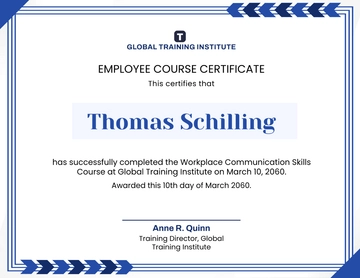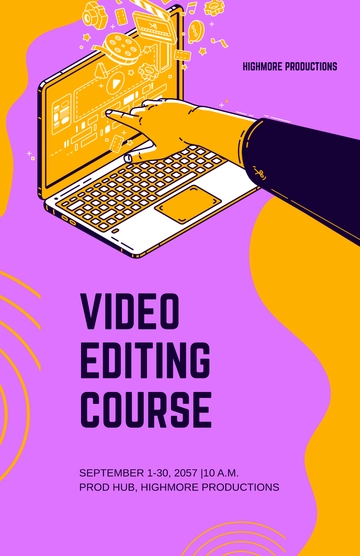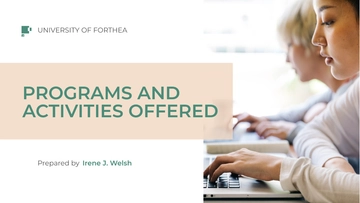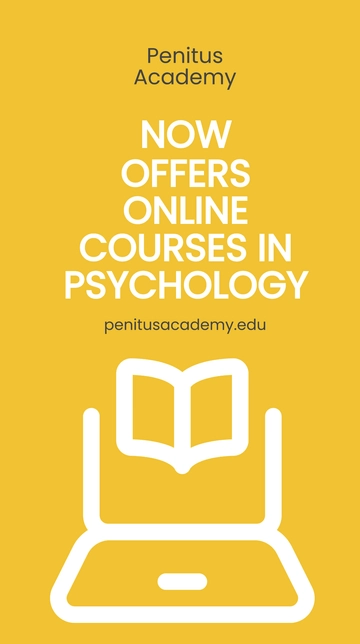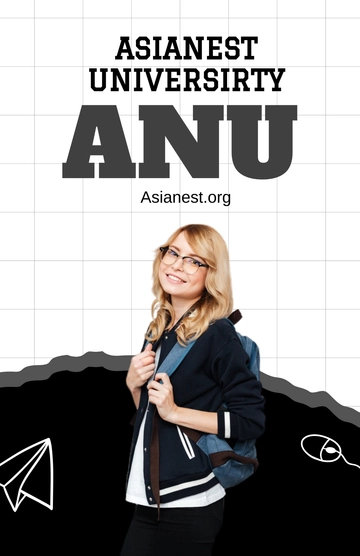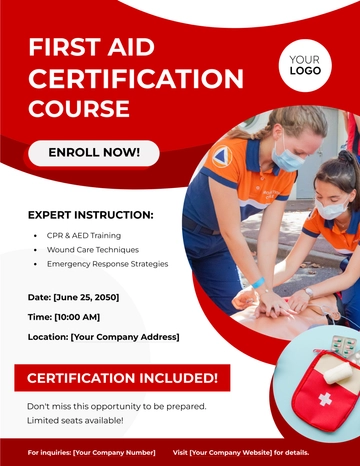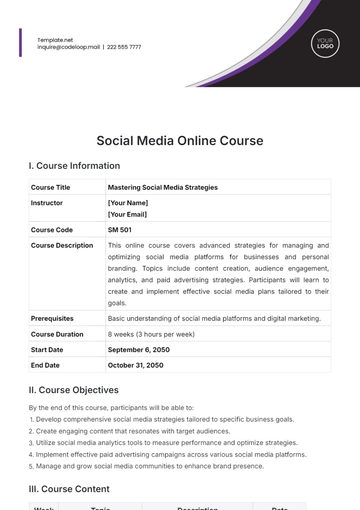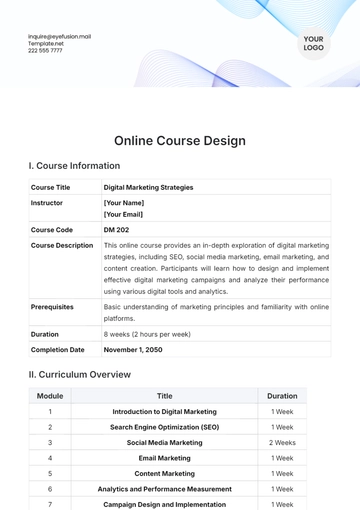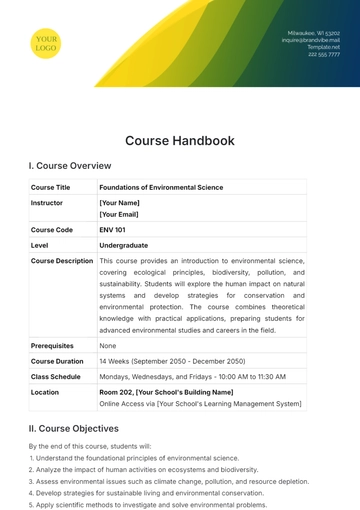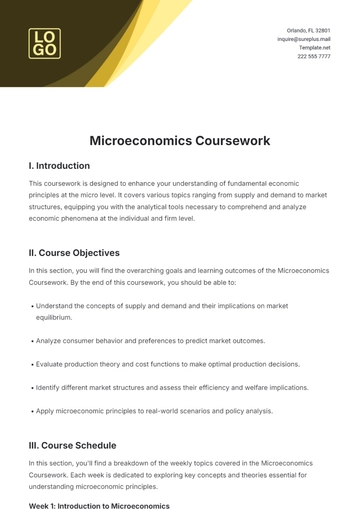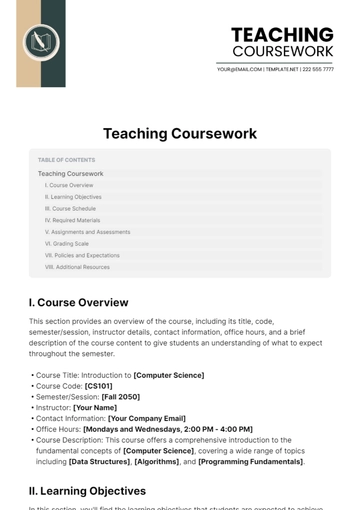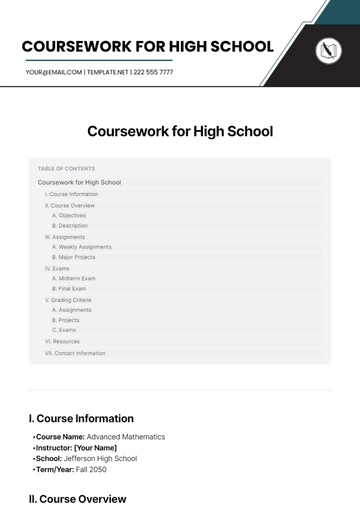Free Course
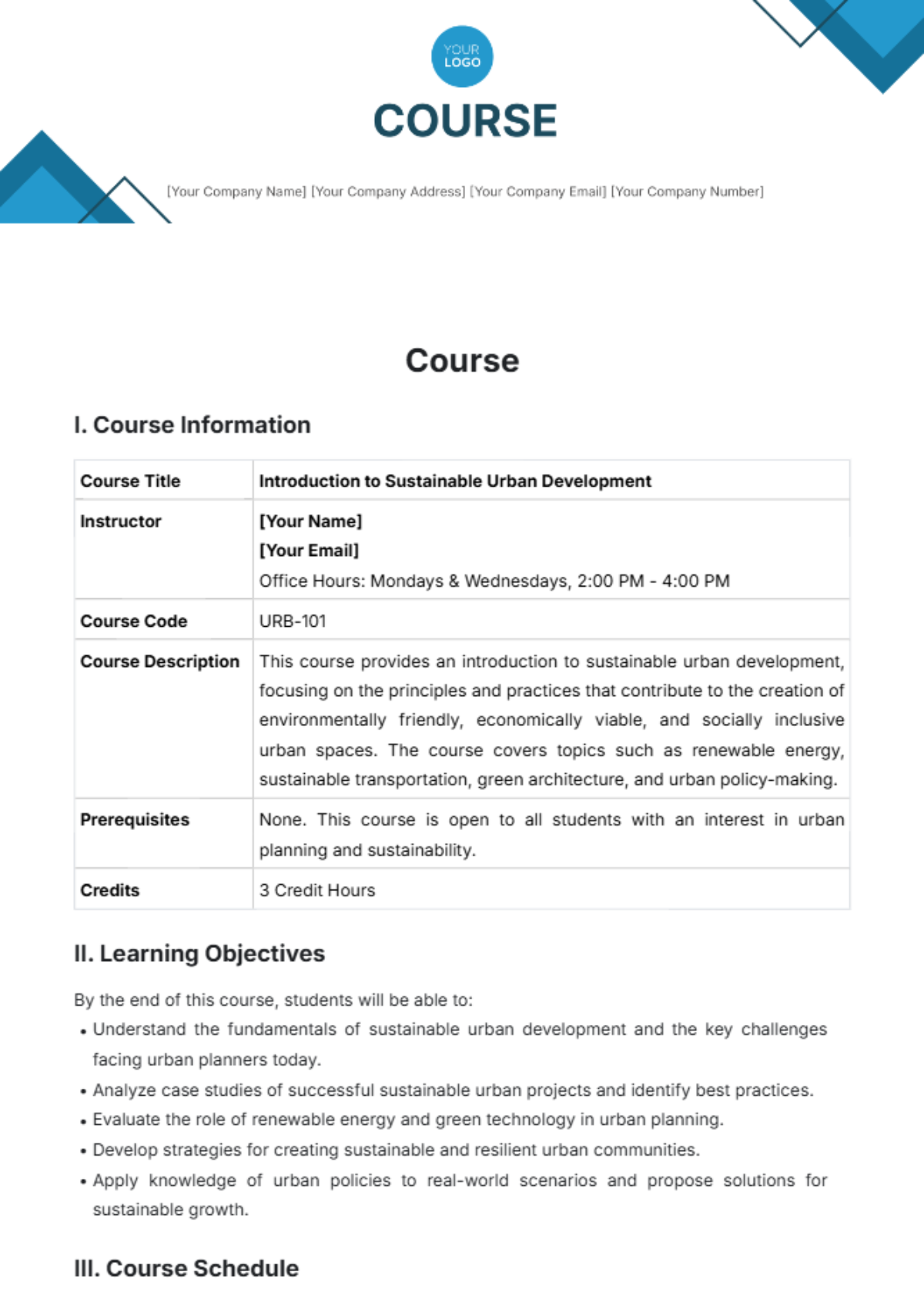
I. Course Information
Course Title | Introduction to Sustainable Urban Development |
Instructor | [Your Name] |
Course Code | URB-101 |
Course Description | This course provides an introduction to sustainable urban development, focusing on the principles and practices that contribute to the creation of environmentally friendly, economically viable, and socially inclusive urban spaces. The course covers topics such as renewable energy, sustainable transportation, green architecture, and urban policy-making. |
Prerequisites | None. This course is open to all students with an interest in urban planning and sustainability. |
Credits | 3 Credit Hours |
II. Learning Objectives
By the end of this course, students will be able to:
Understand the fundamentals of sustainable urban development and the key challenges facing urban planners today.
Analyze case studies of successful sustainable urban projects and identify best practices.
Evaluate the role of renewable energy and green technology in urban planning.
Develop strategies for creating sustainable and resilient urban communities.
Apply knowledge of urban policies to real-world scenarios and propose solutions for sustainable growth.
III. Course Schedule
A. Week 1-2: Introduction to Sustainable Urban Development
Topics Covered:
Definition and importance of sustainable urban development
Historical evolution of urban planning
Introduction to key concepts: sustainability, resilience, and urbanization
Readings:
Chapter 1 & 2 from "Sustainable Cities and Communities" by John Doe
Assignments:
Reflection Paper: "What Does a Sustainable City Look Like?"
B. Week 3-4: Renewable Energy and Urban Development
Topics Covered:
The role of renewable energy in reducing urban carbon footprints
Case studies of solar and wind energy in urban areas
Integration of renewable energy in urban planning
Readings:
Chapter 3 from "Renewable Energy for Urban Development" by Jane Smith
Assignments:
Research Paper: "The Future of Renewable Energy in Urban Planning"
C. Week 5-6: Sustainable Transportation
Topics Covered:
The importance of sustainable transportation in urban areas
Public transportation systems and their impact on urban sustainability
Innovations in green transportation: electric vehicles, bike-sharing, and pedestrian-friendly designs
Readings:
Chapter 4 from "Transporting the Future: Green Mobility in Urban Areas" by Emily Johnson
Assignments:
Group Project: "Designing a Sustainable Transportation System for [Your City]"
D. Week 7-8: Green Architecture and Urban Design
Topics Covered:
Principles of green architecture and sustainable building materials
The role of urban design in creating livable and sustainable cities
Case studies of green buildings and eco-friendly urban designs
Readings:
Chapter 5 from "The Green City: Architecture for a Sustainable Future" by Michael Green
Assignments:
Presentation: "Analyzing Green Buildings in Major Cities"
E. Week 9-10: Urban Policy and Governance
Topics Covered:
Urban policies for sustainability and resilience
The role of government and policy-makers in urban planning
International frameworks and guidelines for sustainable urban development
Readings:
Chapter 6 from "Urban Policies for the Future: Sustainability in Action" by Olivia Brown
Assignments:
Policy Brief: "Proposing a New Urban Policy for [Your City]"
F. Week 11-12: Final Project and Review
Topics Covered:
Course review and preparation for final project
Presentations of final projects
Discussion and feedback on key course topics
Final Project:
Develop a comprehensive sustainable urban development plan for a fictional city, incorporating elements of renewable energy, sustainable transportation, green architecture, and urban policy.
IV. Assessment Methods
Students will be assessed based on the following:
Reflection Paper (10%):
A 500-word reflection on the key concepts of sustainable urban development.
Research Paper (20%):
A 1,500-word paper analyzing the role of renewable energy in urban planning.
Group Project (20%):
A collaborative project designing a sustainable transportation system.
Presentation (15%):
An individual or group presentation on green architecture case studies.
Policy Brief (15%):
A 1,000-word brief proposing a new urban policy for sustainability.
Final Project (20%):
A comprehensive urban development plan incorporating all course elements.
V. Required Texts and Resources
A. Textbooks:
"Sustainable Cities and Communities" by John Doe ISBN: 978-1-234-56789-0
"Renewable Energy for Urban Development" by Jane Smith ISBN: 978-1-234-56789-1
"Transporting the Future: Green Mobility in Urban Areas" by Emily Johnson ISBN: 978-1-234-56789-2
"The Green City: Architecture for a Sustainable Future" by Michael Green ISBN: 978-1-234-56789-3
"Urban Policies for the Future: Sustainability in Action" by Olivia Brown ISBN: 978-1-234-56789-4
B. Online Resources:
[Your Company Website]
Sustainable Urban Development Resource Hub
Green Cities Research Database
VI. Course Policies
A. Attendance:
Regular attendance is mandatory. Students are expected to attend all scheduled classes and participate in discussions.
B. Assignments:
All assignments must be submitted by the deadlines provided. Late submissions will incur a penalty unless prior arrangements are made.
C. Academic Integrity:
Students are expected to maintain the highest standards of academic integrity. Plagiarism and cheating will not be tolerated and may result in severe consequences.
D. Communication:
Students should regularly check their emails and the course portal for updates. For any course-related inquiries, please contact [Your Name] at [Your Email].
VII. Contact Information
A. Instructor:
[Your Name]
[Your Email]
B. Company Information:
[Your Company Name]
[Your Company Email]
[Your Company Address]
- 100% Customizable, free editor
- Access 1 Million+ Templates, photo’s & graphics
- Download or share as a template
- Click and replace photos, graphics, text, backgrounds
- Resize, crop, AI write & more
- Access advanced editor
Discover structured learning with our Course Template on Template.net. This customizable guide ensures your content is both professional and engaging. Editable in our AI Editor Tool, it offers seamless integration with your branding. With every detail fine-tuned for efficiency, create dynamic and effective courses effortlessly. Unlock the potential of tailored, high-quality education materials today!

